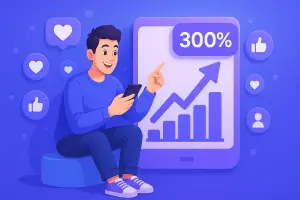In today's bustling digital landscape, Caroline Koziol’s harrowing experience stands as a warning to parents, policymakers, and tech giants alike. Like millions of other teens, she fell into a vortex of extreme dieting, fitness, and unattainable “body goals” — all algorithmically curated and repeatedly served up by TikTok and Instagram. What began as a harmless quest for fitness tips soon became a gateway to obsessive thoughts and eating disorders, setting a dangerous precedent for a vulnerable generation.
But Caroline is not alone. She has become one of over 1,800 plaintiffs involved in a massive class action lawsuit (MDL) against tech behemoths Meta and TikTok’s parent companies. This diverse group accuses the companies of leveraging algorithms that systematically worsen children’s and teens’ mental health. The results? A sharp spike in reported cases of depression, eating disorders, and even suicides — often starting with compulsive consumption of tailored, addictive, and sometimes harmful content.
This lawsuit is about far more than legal responsibility; it’s a call to protect the digital rights of children. Caroline’s story has become a rallying cry for those whose voices have long been drowned out by the roar of technological progress.
Algorithms Aren’t Neutral: How Smart Systems Push Teens to the Brink
The engine behind social media is its recommendation system—almost invisible to users, but deeply influential. Algorithms learn from everything we watch, like, and share, then double down by serving up even more of what they think we want. In theory, this is the magic of artificial intelligence working to enhance user experience. In practice, it often constructs an echo chamber that amplifies harmful behaviors, such as obsession with thinness, extreme dieting, or impossible beauty standards.
Caroline shared that during the pandemic, with outdoor activities limited and social interactions dwindling, she turned more frequently to social media. What started as healthy living tips quickly escalated into an endless stream of content featuring ultra-thin bodies, strict calorie counts, and fasting challenges. Gradually, these images and messages consumed her thoughts, leading to severe eating disorders and depression.
The harsh reality is that algorithms are not just about user convenience—they raise ethical questions about safety, especially when targeting psychologically vulnerable teens seeking a sense of self and belonging.
Beyond the Lawsuit: Healing an Injured Generation
This mass lawsuit is just the tip of the iceberg. Data from recent years reveals a troubling surge in mental health issues among teens, closely linked to rising social media usage. A report from the Centers for Disease Control and Prevention (CDC) highlights a significant spike in rates of depression, anxiety, and suicidal ideation among teenagers—particularly girls—since 2020.
The question remains: to what extent should digital platforms be accountable for the impact of their algorithms? Tech companies often hide behind the claim, “We only show users what they like.” But if popularity favors content that is destructive, don’t companies have a responsibility to intervene?
The plaintiffs aren’t simply seeking damages. They demand social media algorithms be restructured, with strict limits on harmful content, and with mandatory protective features for users under the age of 18. Their aim is not only to curb social media addiction but also to ensure a digital environment that is humane and secure.
It’s Time to Talk: The Roles of Parents, Schools, and Regulation
This phenomenon teaches us that teen mental health is not solely a clinical issue—it is a social and structural one. Parents must realize that when children spend hours scrolling alone in their rooms, they may be absorbing content that deeply impacts their psychological well-being.
Schools too play a vital role, going beyond technical education to provide digital literacy: teaching students not only how to use the internet, but how to filter information, recognize harmful content, and foster healthy self-image. Governments should step in with strong regulations—enforcing data protection laws for minors and algorithmic controls for sensitive content, similar to the UK's Age-Appropriate Design Code or the EU's Digital Services Act.
The case is a wake-up call—it’s time for algorithms to be assessed not just on technical merit, but on moral grounds. We must stop normalizing exposure to harmful content and instead foster empathy with every swipe and click.
Building a healthier digital world is not only the responsibility of the platforms, but of every one of us.







Responses (3)
Wow, cool sis. I support..
Wow, cool sis. I support you..
Keep the spirit, beautiful mince.